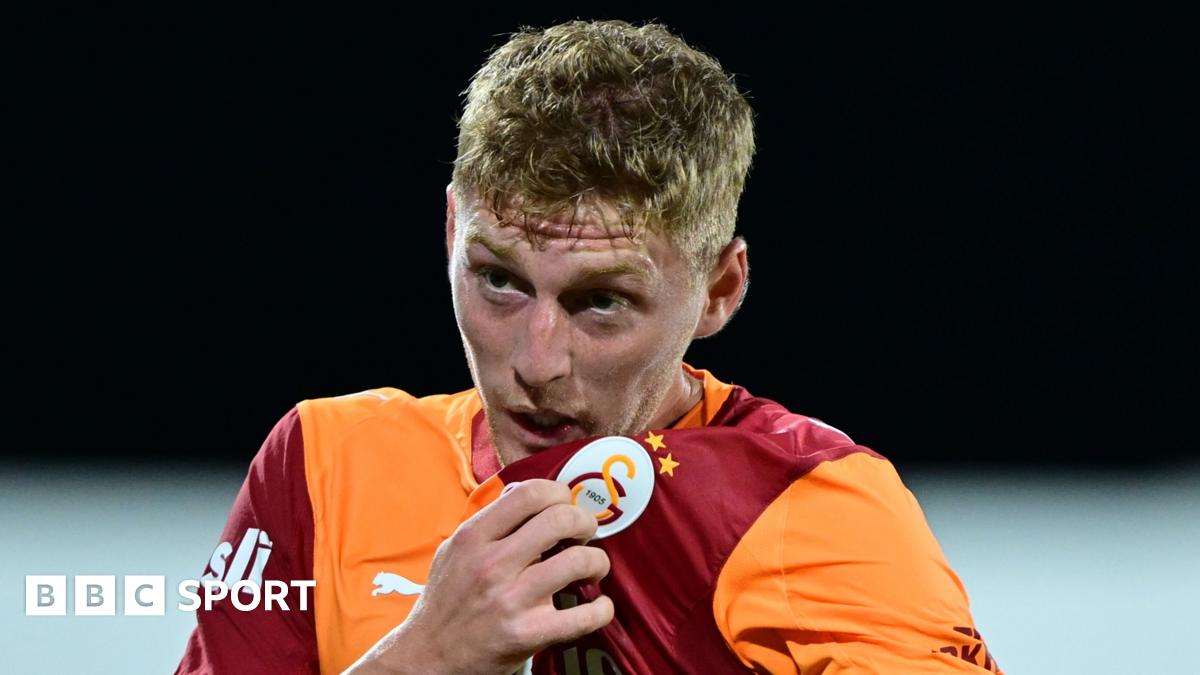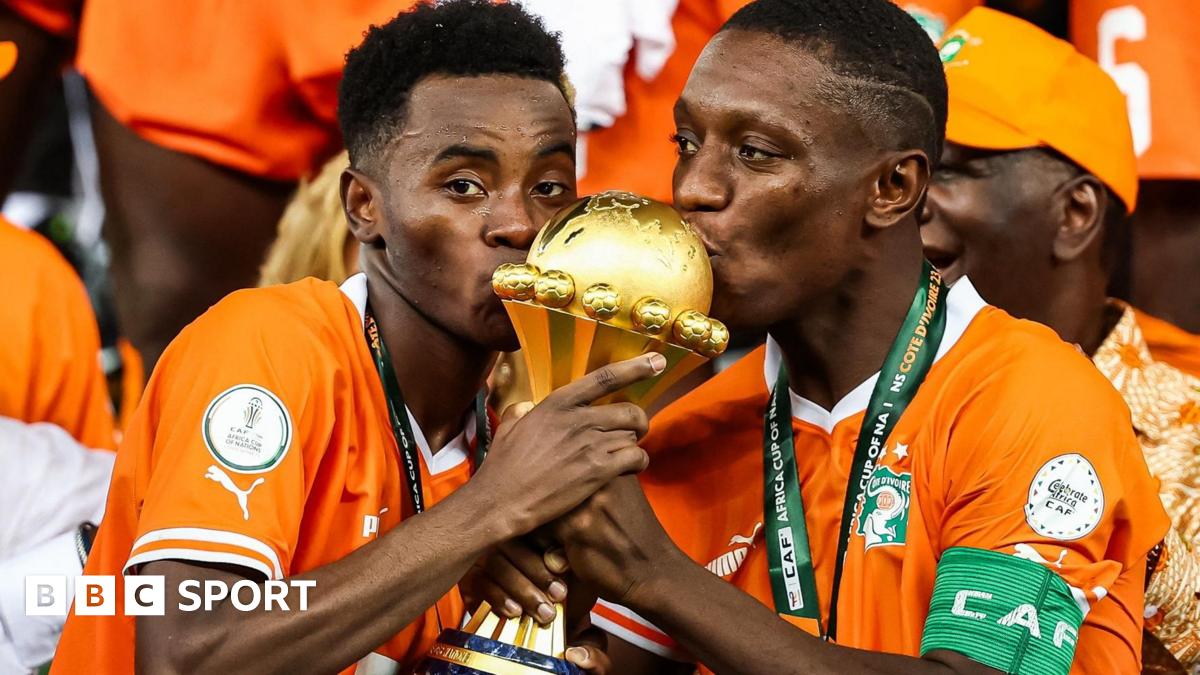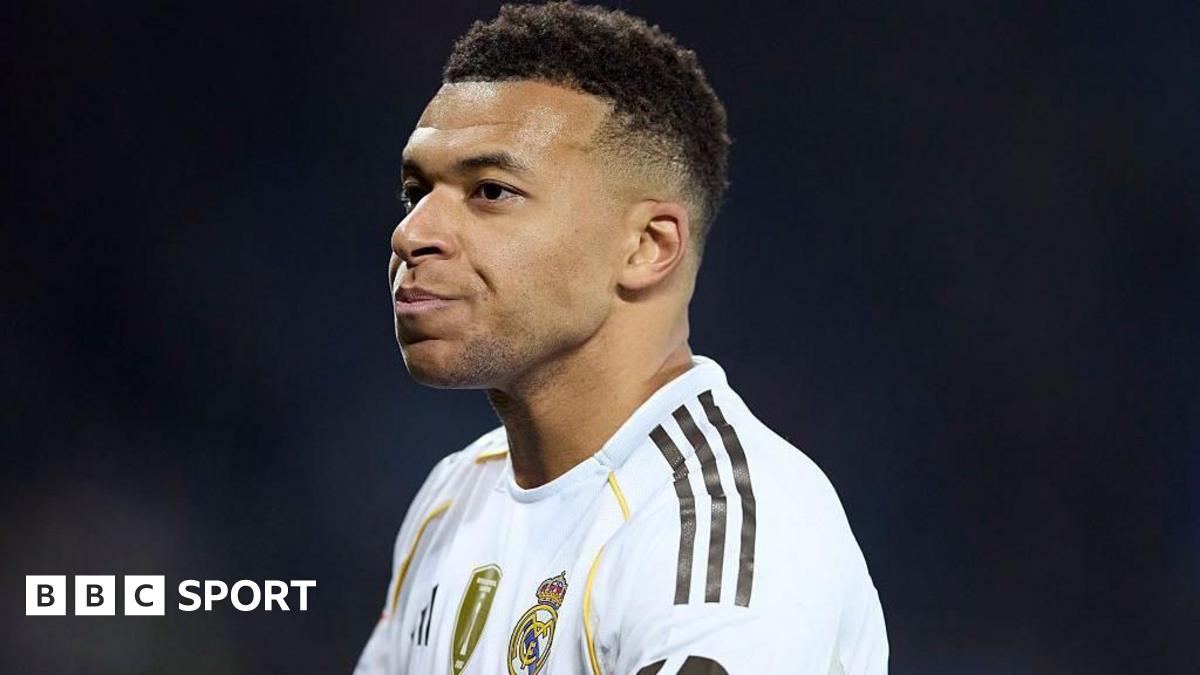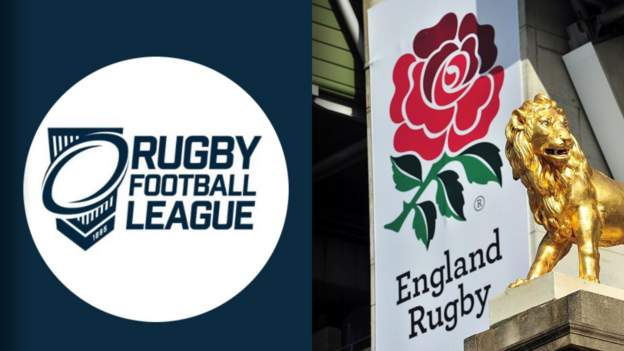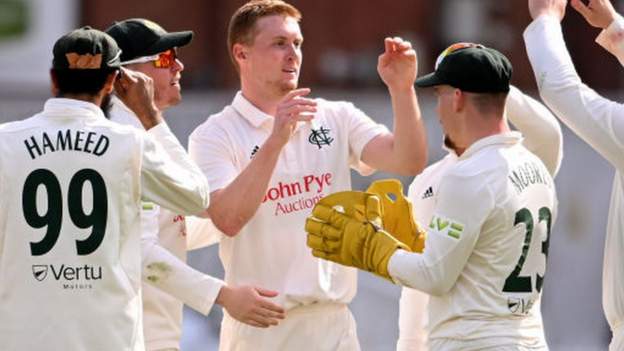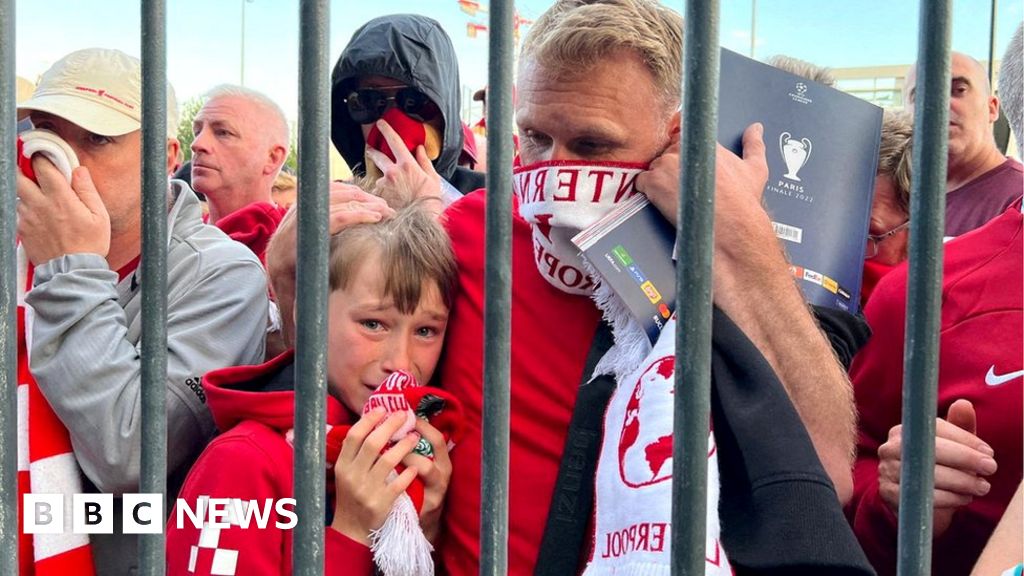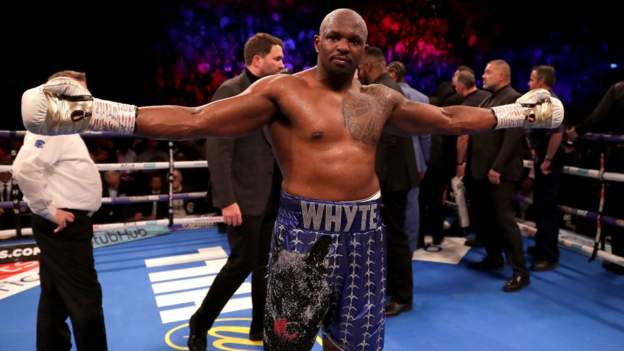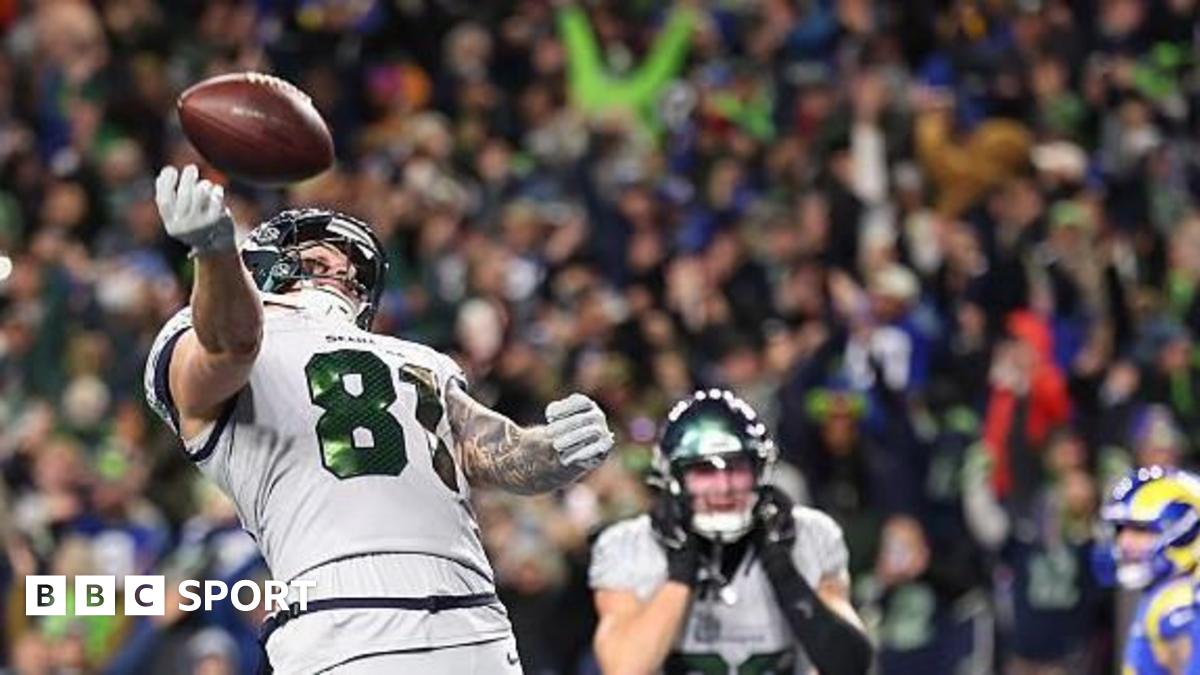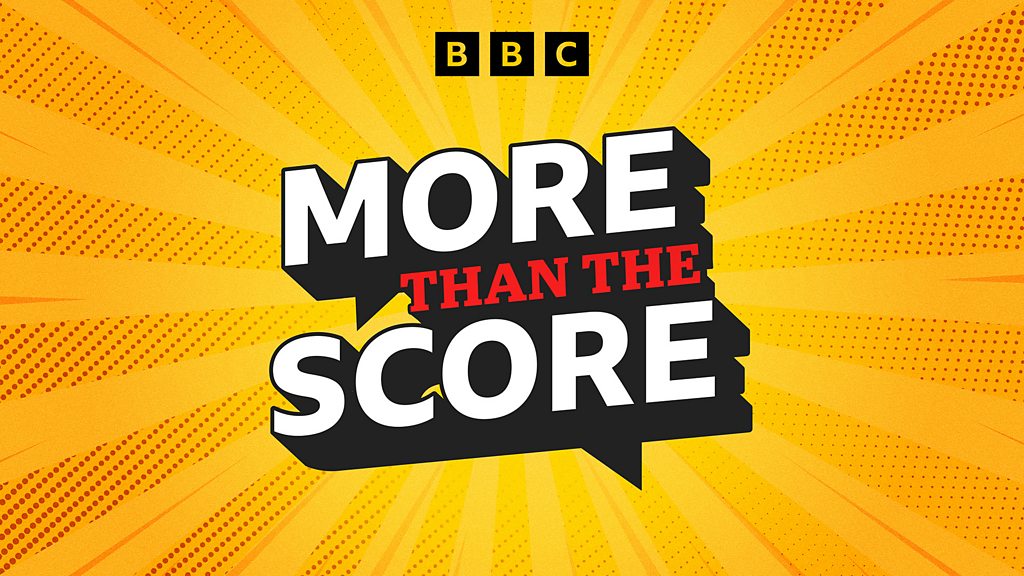The Rugby Football League (RFL) and Rugby Football Union (RFU) have banned transgender women from competing in female-only forms of their games.
The RFL’s board approved its new policy which will come into effect in August.
The RFU’s council voted on Friday to pass its new policy for the 2022-23 season, with “33 in favour, 26 against and two abstaining”.
About 30 protestors gathered at the RFU’s headquarters at Twickenham Stadium before the vote.
The RFL’s new “Gender Participation Policy” applies to contact rugby league from Under-12s and above, while the RFU’s guidance kicks-in for Under-12s and above.
There are currently six transgender women playing senior rugby union.
What has the RFU said?
The RFU, the governing body of the union code in England, had previously recommended a ban.
On Friday, the council passed policy which will “only permit players in the female category if the sex originally recorded at birth is female”.
“The RFU Council has determined that until such time as new further peer-reviewed science is available, a precautionary approach is appropriate to ensure fair competition and safety of all competitors,” a statement said.
This follows World Rugby’s stance – which in 2020 became the first international sports federation to say transgender women cannot compete at the elite and international level of the women’s game.
A group of protestors were at Twickenham on Friday to share their support for the trans community before the vote.
The RFU began a two-year review into its current policy in autumn 2020, which included a game-wide survey that received over 11,000 responses, considered scientific evidence and sought guidance from other sporting bodies.
“This science provides the basis of the new gender participation policy that concludes the inclusion of trans people originally recorded male at birth in female contact rugby cannot be balanced against considerations of safety and fairness,” the RFU said.
It added that is had been “a complex and difficult decision and the policy change was not taken lightly or without thorough and full research and consultation”.
RFU president Jeff Blackett said: “We know that many will be disappointed by this decision, however it has been based on all the scientific evidence available.
“Our game can be strengthened by everyone who is involved; be it in coaching, refereeing, administration or supporting and playing non-contact forms of the game.”
The RFU said there were discussions of evaluating a case-by-case system but said: “In light of the research findings and work of World Rugby and the UK Sports Councils, and given the difficulties in identifying a credible test to assess physiological variables, this is no longer a viable option at this time and does not necessarily ensure inclusion.”
The RFU added: “In the male category, players whose sex recorded at birth is female may play if they provide their written consent and a risk assessment is carried out.”
The governing body has also contacted the transgender women players who are registered to play in England “to offer its support in continuing to encourage them to participate in the sport”.
The RFU also said it will be conducting more research: “RFU is committed to working with World Rugby and UK Sports Councils to ensure further research is conducted and to reviewing the policy on a regular basis.”
What has the RFL said?
The governing body of English rugby league said only players who were assigned female at birth can play in a female-only category in contact sport from under-12s and above.
This follows the recent ban on “male-to-female (transwomen) players” from women’s international rugby league.
The RFL added there will be another review of its policy carried out “by November 2024” and said: “[We are] committed to providing and supporting opportunities for everyone to be actively involved in the sport.
“However, it is important that the playing opportunities provided are safe and fair for all participants. This means that, when determining the eligibility criteria, a precautionary approach needs to be adopted in respect of contact variations of rugby league, so that safety and fairness are considered alongside the principle of inclusion.”
There will also certain eligibility requirements for male categories “to ensure that transgender people wishing to play male contact rugby league have the appropriate experience and competence to participate safely”.
Touch, tag, X-League, learning disability rugby league and wheelchair rugby remain mixed gendered.
Has there been reaction to the news?
England and Saracens player Poppy Cleall, who has changed her profile picture to the trans flag, wrote on Twitter referencing the RFU’s decision: “From one of the most inclusive sports to one of the least in 7 votes.”
England World Cup winner Danielle Waterman tweeted about the decision: “In my opinion this is right for the game at the moment, as it is supported by science/current research on the safety of players.
“You may agree or disagree with my view, but either way, everyone should be entitled to share their opinion without the fear of judgment or hate!”
Mermaids, a charity supporting transgender children and young people, wrote that it was a “a dark day for rugby” adding: “Our thoughts are with all those affected by today’s announcements, and who are now facing a future on the sidelines of a sport which should be for everyone.”
What have other sports done?
In June, swimming’s world governing body Fina voted to stop transgender athletes from competing in women’s elite races if they have gone through any part of the process of male puberty.
A few weeks later, British Triathlon become the first British sporting body to establish a new ‘open’ category in which transgender athletes can compete.
Cycling’s governing body, the UCI, recently toughened its rules on transgender eligibility.
In June, UK culture secretary Nadine Dorries met with the heads of UK sporting bodies and told them that “elite and competitive women’s sport must be reserved for people born of the female sex”.

